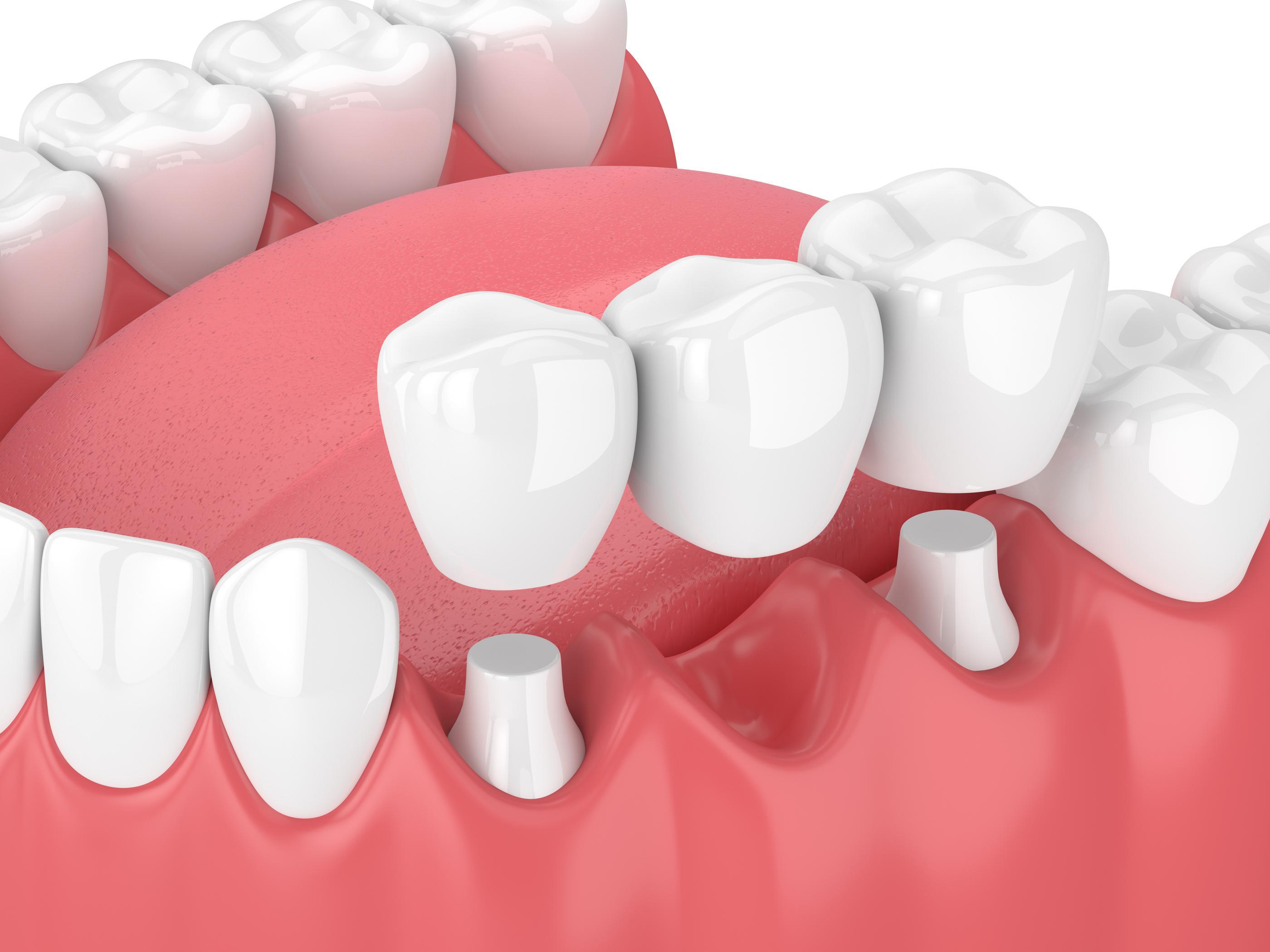
A dental bridge is a fixed, non-removable device used to replace one or more missing teeth. It offers an effective and long-lasting solution for restoring your smile and dental function.
There are several types of dental bridges, and your dentist will help determine the best option for your individual needs. The most common is the traditional bridge, usually made from porcelain fused to metal. This design involves two crowns placed over healthy teeth (called abutment teeth) on either side of the gap. These crowns are connected to artificial teeth, or pontics, which fill the space left by the missing tooth or teeth.
Dental bridges are built to be durable, often lasting many years with proper care. However, they may eventually require replacement or re-cementing due to normal wear and tear.
Benefits of a Fixed Bridge
- Fills the space created by missing teeth
- Helps maintain the natural shape of your face
- Prevents nearby teeth from shifting out of position
- Restores your ability to chew and speak clearly
- Brings back your confident smile
- Offers a stable alternative to removable partial dentures
What to Expect When Getting a Fixed Bridge
The process of getting a bridge typically requires two or more dental appointments. At your first visit, our dentist will numb the area and prepare the abutment teeth by removing a small amount of enamel to make room for the crowns. Precise impressions of your teeth are then taken and sent to a dental laboratory, where your custom bridge is crafted. Meanwhile, you’ll be fitted with a temporary bridge to protect your prepared teeth and maintain function until your permanent bridge is ready.
During your second appointment, our dentist will check the fit and appearance of your permanent bridge, making any necessary adjustments before cementing it in place. Sometimes, the bridge is temporarily cemented to allow you and your gums to adjust before it is permanently secured.
After the procedure, you’ll receive detailed care instructions. Keeping up with good brushing and flossing habits, as well as attending regular dental checkups, will help ensure your new bridge remains strong and functional for years to come.

